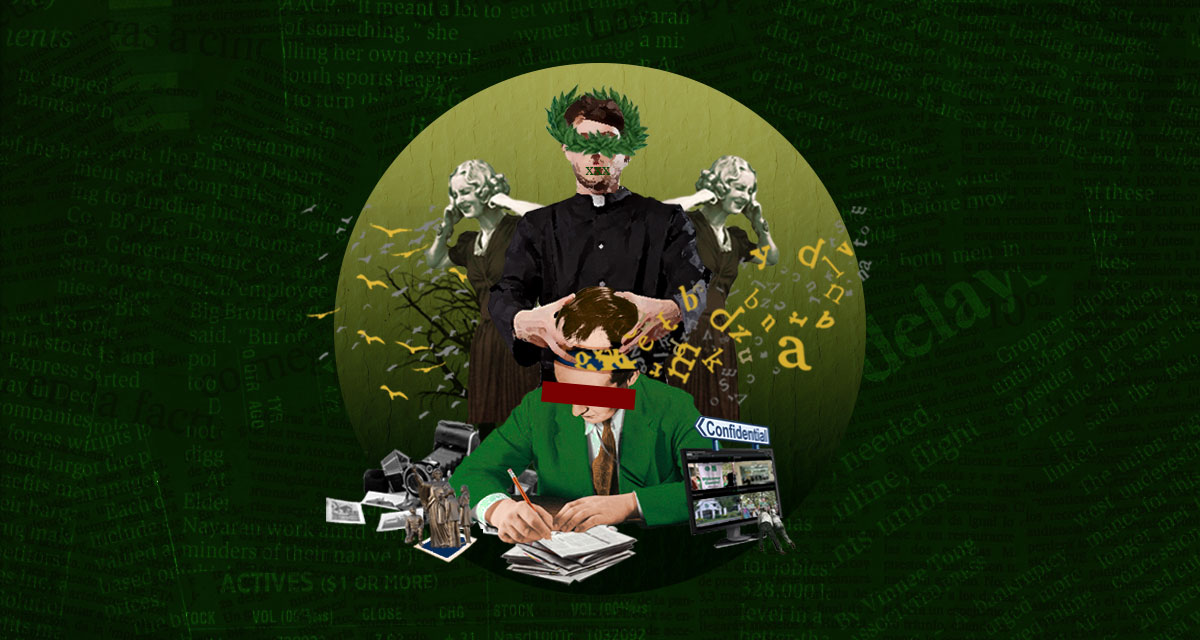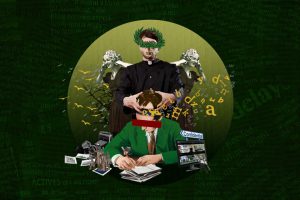

To operate as a student publication bearing the name of a highly regarded institution comes with it the challenge to expose the issues that would suggest otherwise. From a journalist’s perspective, the difficulty in publishing bold and provocative stories about the campus is more of a struggle for transparency rather than a question of will. Needless to say, apart from it being a necessity for balanced reporting, the former exists alongside the journalists’ attempt to hold the people in power accountable when the issues at hand call for it.
Bringing light on relevant issues which concern the readers remains to be the central role of journalists’ serving as the fourth estate. However, even today there seems to be a climate that questions whether there ought to be room for an active fourth estate serving as a watchdog in an educational institution. The answer may be in the form of a simple correlation.
Any school, no matter how big or small, is designed to be a parallel of the country it belongs in. As there are press institutions in the country who report and investigate on the actions of the government, so there are campus journalists who perform these similar functions upon the school administration. There is no doubt that a healthy democracy would thrive if people at the community and the national level would understand and better appreciate these shared rights founded on democratic principles.
“There is no doubt that a healthy democracy would thrive if people at the community and the national level would understand and better appreciate these shared rights founded on democratic principles.”
Such continues to be the founding ideas of the Campus Journalism Act of 1991 that intends to uphold the freedom of the press even at the campus level. Even if it means being against the best interests of the school embodied by publication itself.
Thwarted coverage of Taal evacuees
At the onset of the opening of the DLSL evacuation center for the displaced victims of the recent Taal Volcano eruption, getting hold of accurate narratives was withheld by the administration, preventing reporters from the campus media to freely take photos of the situation and to freely conduct interviews with the evacuees.
Citing a misled interpretation of the Data Privacy Act and an unnecessary policy of “preserving the dignity” of the evacuees (there was no apparent reason to suggest that their dignity was under threat), the school administration amidst an ongoing crisis, laid down a directive that limited Lavoxa from freely covering the stories of the people affected by calamity, a directive which is a clear obstruction to the freedom of the campus press. With their conflicting mandate, only a few members of the mainstream media were selectively allowed by the school to fully cover the evacuation project while banning its own student publication of the same privileges. Only after a measure of defiance and argumentation was Lavoxa able to produce a couple of stories. This was on top of the administration’s decision to channel the flow of information through its Strategic Communications office, limiting its accounts to purely marketable content that would only benefit the school’s already prominent name.
A growing culture of silence
For quite some time now, such a treatment has proven not to be an isolated case between the campus press and the current administration. Likewise, it has progressively become a shared reaction for other institutional offices to decline providing relevant information when a reporter from the publication expresses the intention to delve into certain controversial issues. In recent years, a lot of decisions have been made by the current administration to significantly alter the academic experience in DLSL, but it has been observed that authorities across almost all departments have been reluctant to disclose relevant information on matters of student interest without prior clearance from higher offices. This has been especially true for those that may possibly draw negative impressions from readers.
“As how a free press is essential in preserving national democracy, the campus press by analogy is also a vital part of ensuring transparency between the institution and its students and stakeholders.”
Even faculty and staff have become hesitant to speak freely when asked about the important issues. There are dialogues conducted amongst private circles but when pressed to go on record, most would rather stay indifferent to their responsibility to provide students with clarity as talking about one’s opinions truthfully are presumed to carry the risks of losing one’s job. This is a strong indication of a “culture of silence” beginning to set in and perhaps what might be already called a “chilling effect” upon the campus community.
***
As how a free press is essential in preserving national democracy, the campus press by analogy is also a vital part of ensuring transparency between the institution and its students and stakeholders. For integrity is best preserved by honesty and transparency rather than by simply presenting a perfect or calculated picture of the truth. When authorities withhold information behind a highly regarded name as La Salle, they only take a step closer to losing the reputation they aim to protect in the first place.
Journalism is a public service rooted in accountability, demanding the truth in order to arrive at a balanced criticism on issues that need correcting. It is not simply a representation of the disapproval or scrutiny without a key purpose. The mainstream media is never the enemy of the state just as the school publication is not an enemy to the institution that it is a part of. It is but a voice that needs to be heard. A campus journalist is as legitimate as any other journalist tackling a much bigger and more consequential field assignment and must be accorded the same rights to exercise the freedoms of speech and of the press.